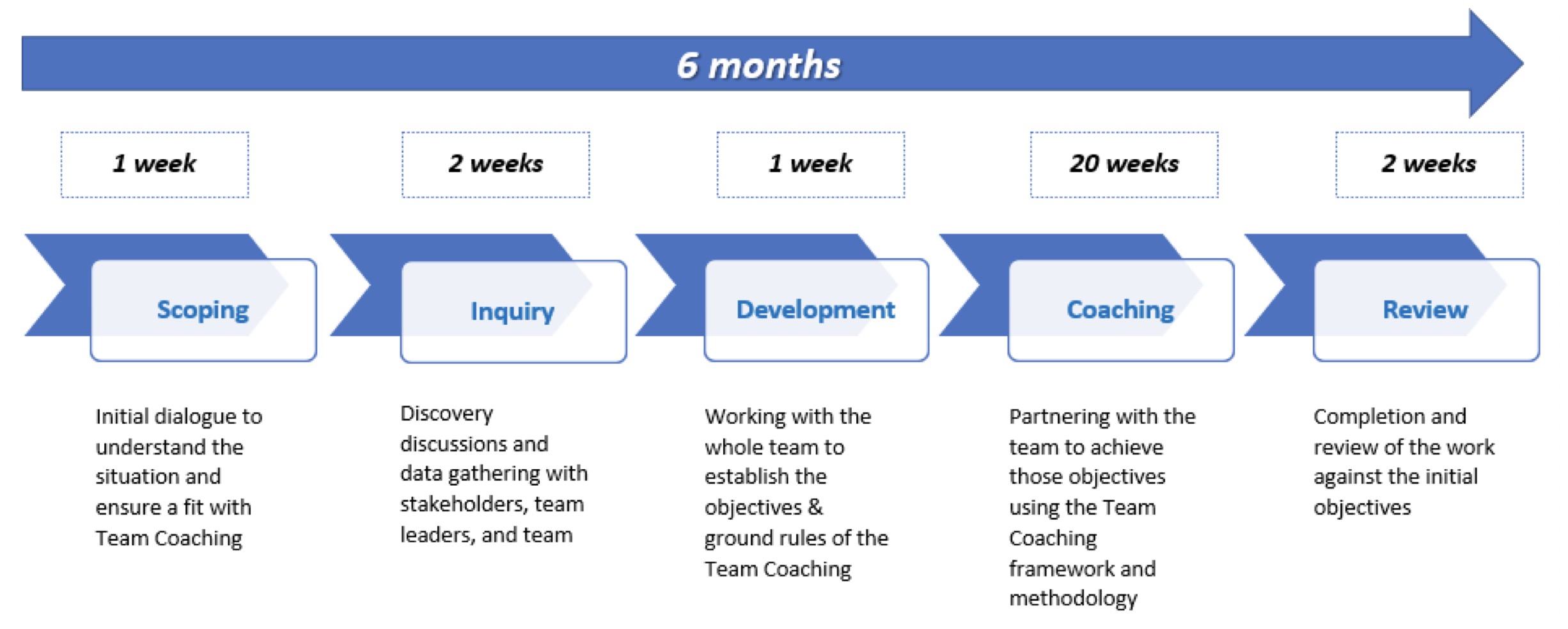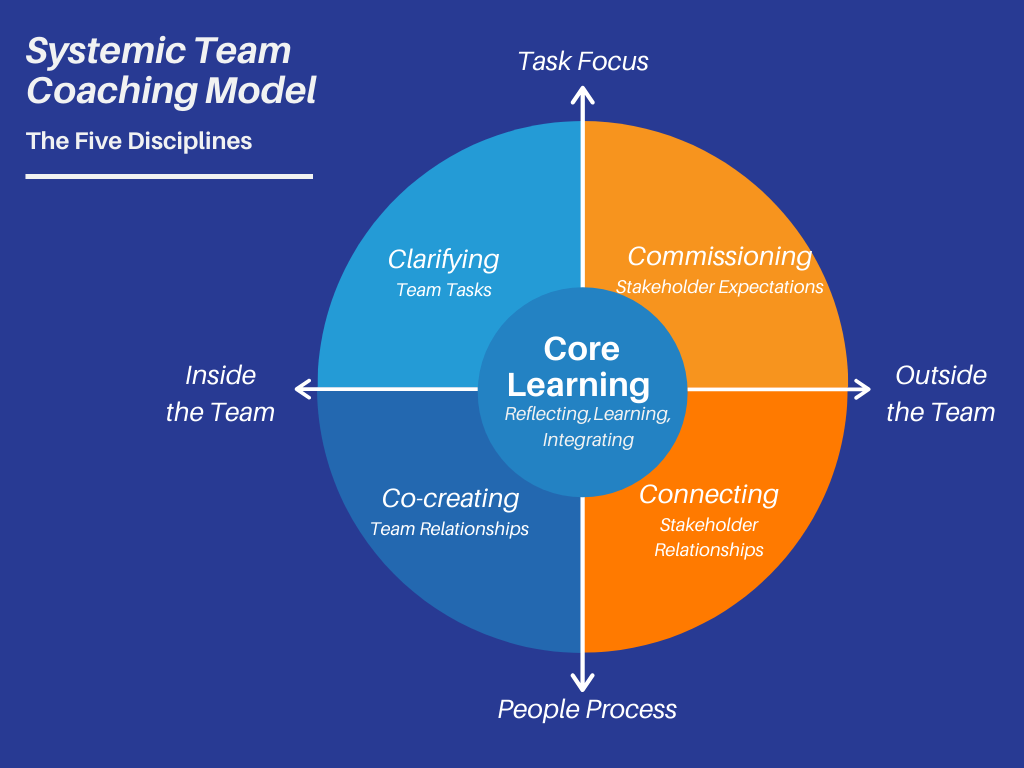Team Coaching

Two Interesting Facts:
- 80% of organizations operate almost wholly in teams.
- Fewer than 12% of teams score themselves as high performing, meaning that nearly 9 out of 10 teams in organizations are not reaching their potential.
A recent study conducted by Deloitte demonstrates that focusing on teams, not just leaders, is critical for business success. Moreover, according to Forbes, “Today's digital world of work has shaken the foundation of organizational structure, shifting from the traditional functional hierarchy to… a ‘network of teams.’”
All of this makes it clear that team development should be one of your biggest business investments. Organizational success depends on nimble and collaborative teams – teams that can rapidly adapt to both internal and external challenges and opportunities.
As a Systemic Team Coach, I partner with clients not only on the internal dynamics of the team, but on how the team interacts with its stakeholders. The result enhances the performance of individual members, the leader and the team as a whole, all the while making sure the team is serving the needs of current and future stakeholders.
Future stakeholders?
Yes – future stakeholders. Given the stunning array of recent changes, many leaders are exhausted just trying to meet today’s challenges. No wonder it’s hard for them to find time to do their most important work: anticipating and strategizing for future needs and opportunities.
This is an area where team coaching can really help. With an eye toward the challenges and opportunities on the horizon, the team and I examine data gathered from team members and key stakeholder groups to discern and rally around a clear purpose. Having identified the issues & opportunities, we work together to determine what shifts the team needs to make both within and beyond the team, designing developmental and performance goals to fulfill the team’s purpose.
A Few Key Points to Highlight About This Process
Coaching takes place during regular business meetings while the team is doing real work. This approach allows me to intervene as needed to support the team's learning and effectiveness in real time.
My partnership with clients is based on data, not assumptions, ensuring the team focuses on the right issues. As I like to say, we diagnose patterns, not people.
During the engagement, I help the team establish practices that:
- Accelerate decision-making
- Share leadership
- Increase accountability
- Support ongoing learning and growth
- Recognize and benefit from the gift that diversity brings to teamwork
- Become more adept at responding to conflict, using curiosity and empathy to strengthen relationships and quality results
- Take full advantage of the opportunities the virtual environment provides for optimal connection and collaboration
Team Coaching Case Studies
Since real improvement in business metrics is what matters most, my approach includes focusing on the key competencies the team wants to develop while simultaneously working on real business goals. We measure both – because “what gets measured gets improved.” As an illustration, here are descriptions of Team Coaching Case Studies using TCI's approach with one significant improvement pulled from each of them:
Team Coaching Process: A Sample Timeline


5 Critical Conversations To Have With Your Team
Free download
Fewer than 12% of teams score themselves as high performing, meaning that nearly 9 out of 10 teams in organizations are not reaching their potential. These five questions will get you started toward reaching your team's true potential.


